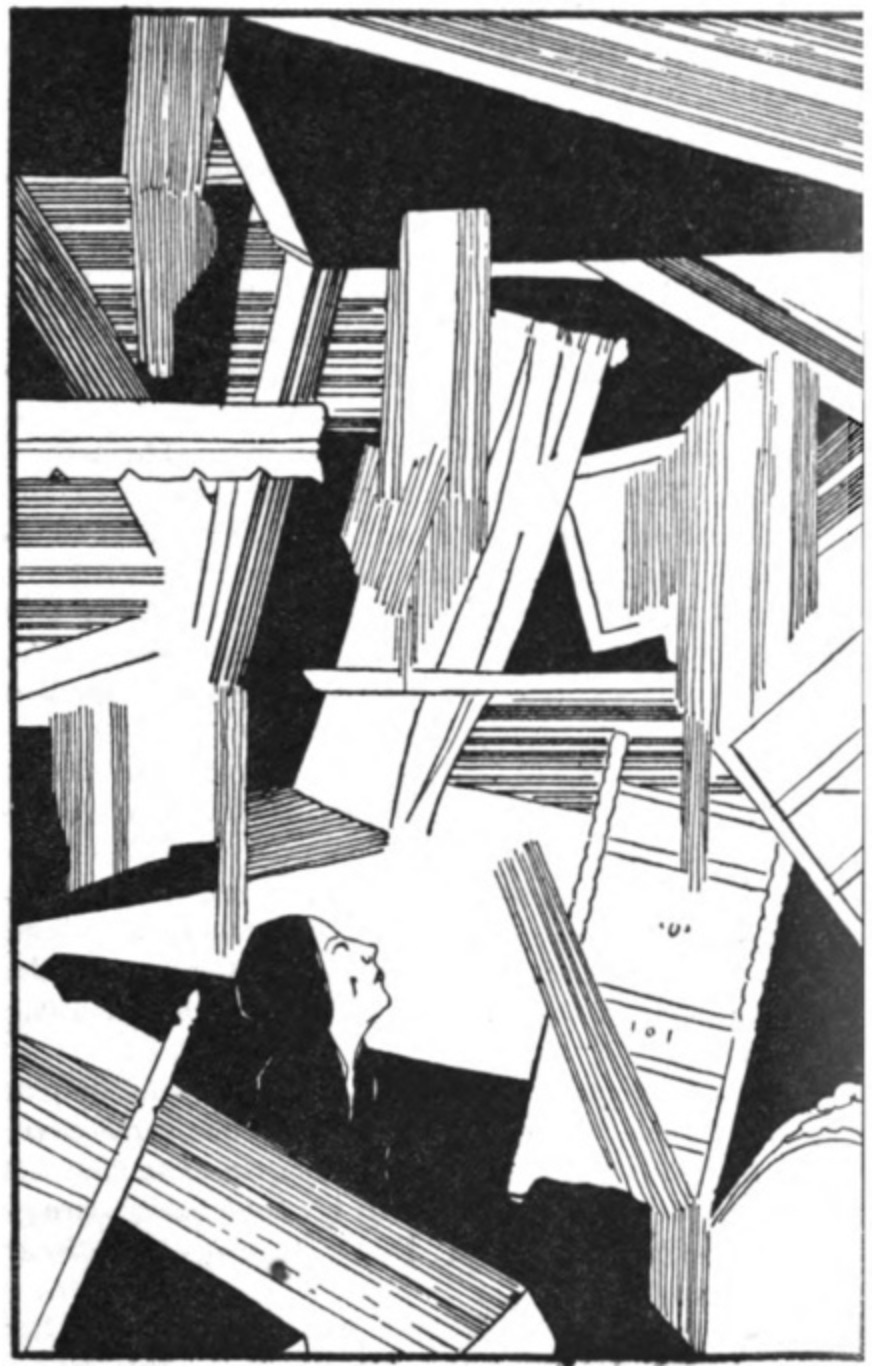WHERE THEIR FIRE IS NOT QUENCHED (6)
By:
February 7, 2024

May Sinclair’s “Where Their Fire is Not Quenched” was first published in the English Review in October 1922 and later appeared in Sinclair’s 1923 collection Uncanny Stories. It has frequently been reprinted in supernatural, horror, and fantasy anthologies; I’m grateful to Paul March-Russell, whose Modernism and Science Fiction encourages us to think of Sinclair as also being a proto-sf author. (PS: Interesting to compare this story’s ending with Sartre’s No Exit, p. 1944.) HiLoBooks is pleased to serialize it here for HILOBROW’s readers.
ALL INSTALLMENTS: 1 | 2 | 3 | 4 | 5 | 6 | 7 | 8 | 9 | 10.
She lay dozing in her white bed under the black crucifix with the ivory Christ. The basins and medicine bottles had been cleared from the table by her pillow; it was spread for the last rites. The priest moved quietly about the room, arranging the candles, the Prayer Book and the Holy Sacrament. Then he drew a chair to her bedside and watched with her, waiting for her to come up out of her doze.
She woke suddenly. Her eyes were fixed upon him. She had a flash of lucidity. She was dying, and her dying made her supremely important to Clement Fanner.
“Are you ready?” he asked.
“Not yet. I think I’m afraid. Make me not afraid.”
He rose and lit the two candles on the altar. He took down the crucifix from the wall and stood it against the foot-rail of the bed.
She sighed. That was not what she had wanted.
“You will not be afraid now,” he said.
“I’m not afraid of the hereafter. I suppose you get used to it. Only it may be terrible just at first.”
“Our first state will depend very much on what we are thinking of at our last hour.”
“There’ll be my — confession,” she said.
“And after it you will receive the Sacrament. Then you will have your mind fixed firmly upon God and your Redeemer…. Do you feel able to make your confession now, Sister? Everything is ready.”
Her mind went back over her past and found Oscar Wade there. She wondered: Should she confess to him about Oscar Wade? One moment she thought it was possible; the next she knew that she couldn’t. She could not. It wasn’t necessary. For twenty years he had not been part of her life. No. She wouldn’t confess about Oscar Wade. She had been guilty of other sins.
She made a careful selection.
“I have cared too much for the beauty of this world…. I have failed in charity to my poor girls. Because of my intense repugnance to their sin…. I have thought, often, about — people I love, when I should have been thinking about God.”
After that she received the Sacrament.
“Now,” he said, “there is nothing to be afraid of.”
“I won’t be afraid if — if you would hold my hand.”
He held it. And she lay still a long time, with her eyes shut. Then he heard her murmuring something. He stooped close.
“This — is — dying. I thought it would be horrible. And it’s bliss…. Bliss.”
The priest’s hand slackened, as if at the bidding of some wonder. She gave a weak cry.
“Oh — don’t let me go.”
His grasp tightened.
“Try,” he said, “to think about God. Keep on looking at the crucifix.”
“If I look,” she whispered, “you won’t let go my hand?”
“I will not let you go.”
He held it till it was wrenched from him in the last agony.
RADIUM AGE PROTO-SF: “Radium Age” is Josh Glenn’s name for the nascent sf genre’s c. 1900–1935 era, a period which saw the discovery of radioactivity, i.e., the revelation that matter itself is constantly in movement — a fitting metaphor for the first decades of the 20th century, during which old scientific, religious, political, and social certainties were shattered. More info here.
SERIALIZED BY HILOBOOKS: James Parker’s Cocky the Fox | Annalee Newitz’s “The Great Oxygen Race” | Matthew Battles’s “Imago” | & many more original and reissued novels and stories.
